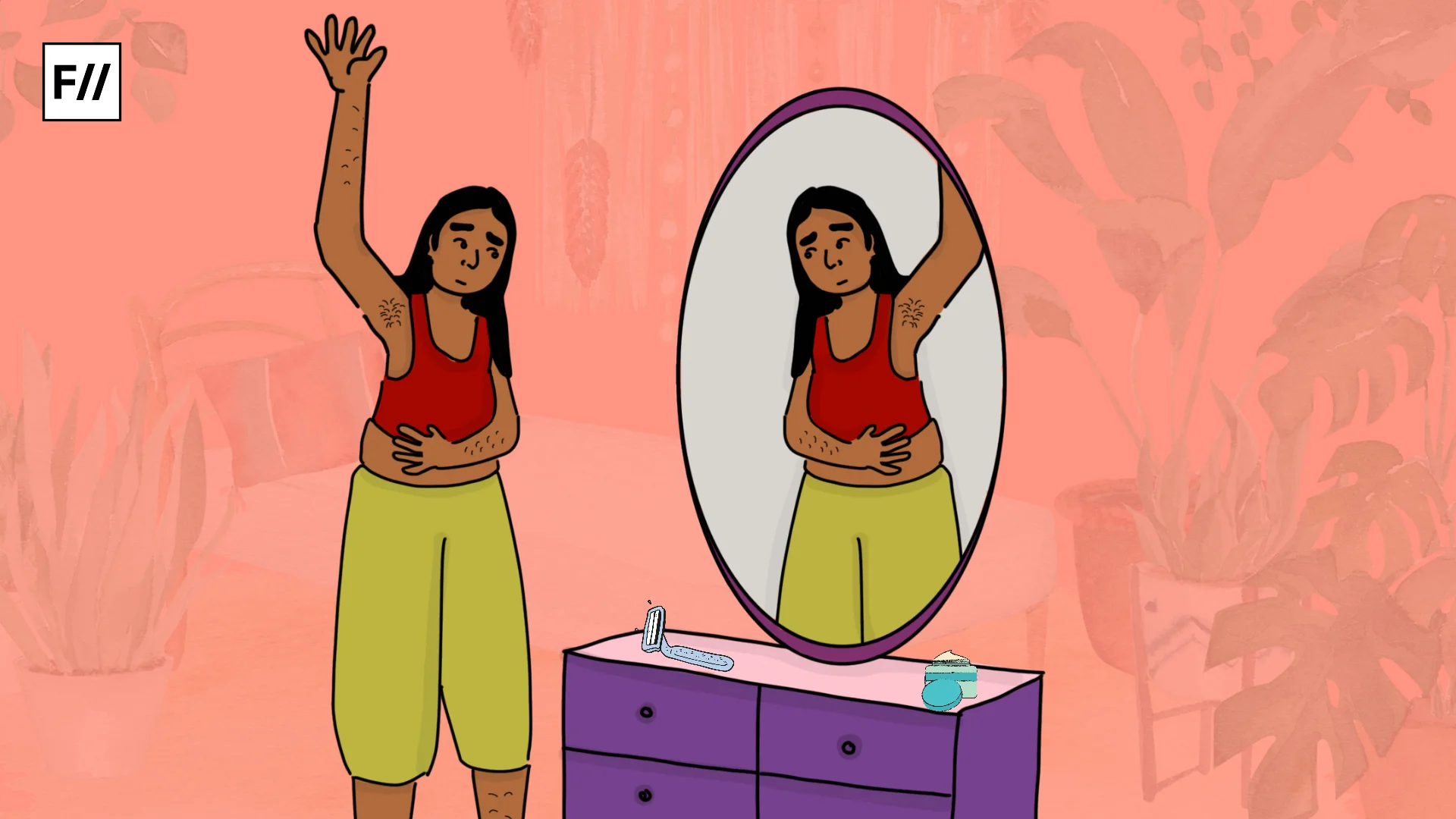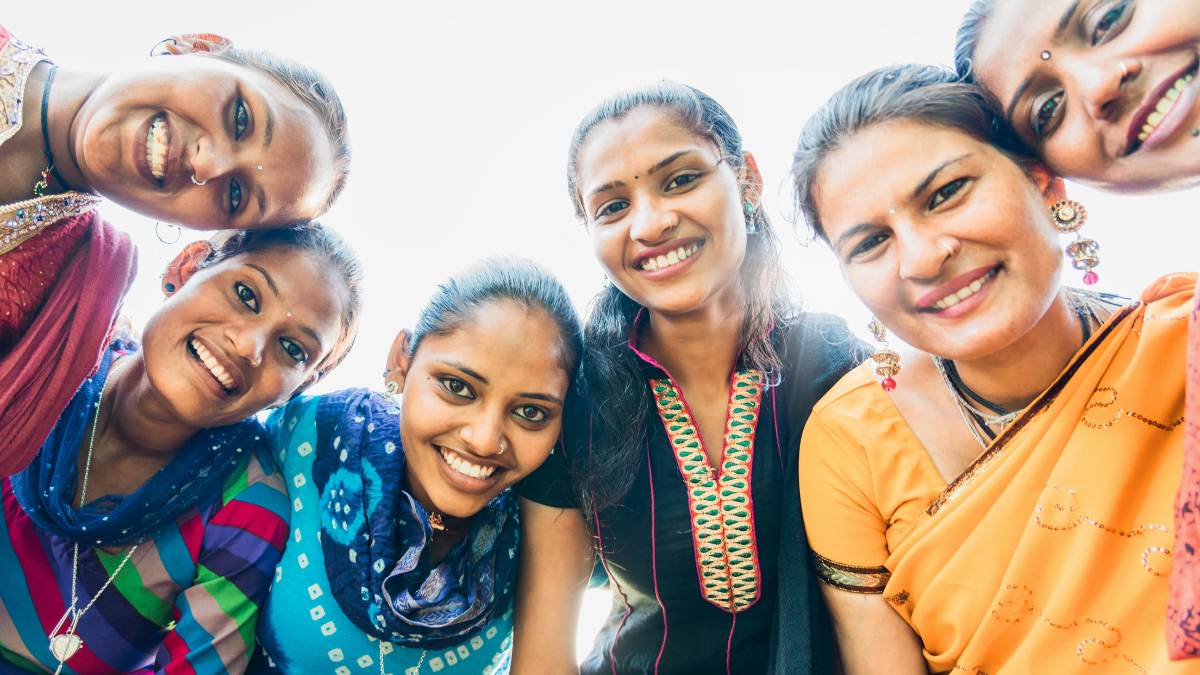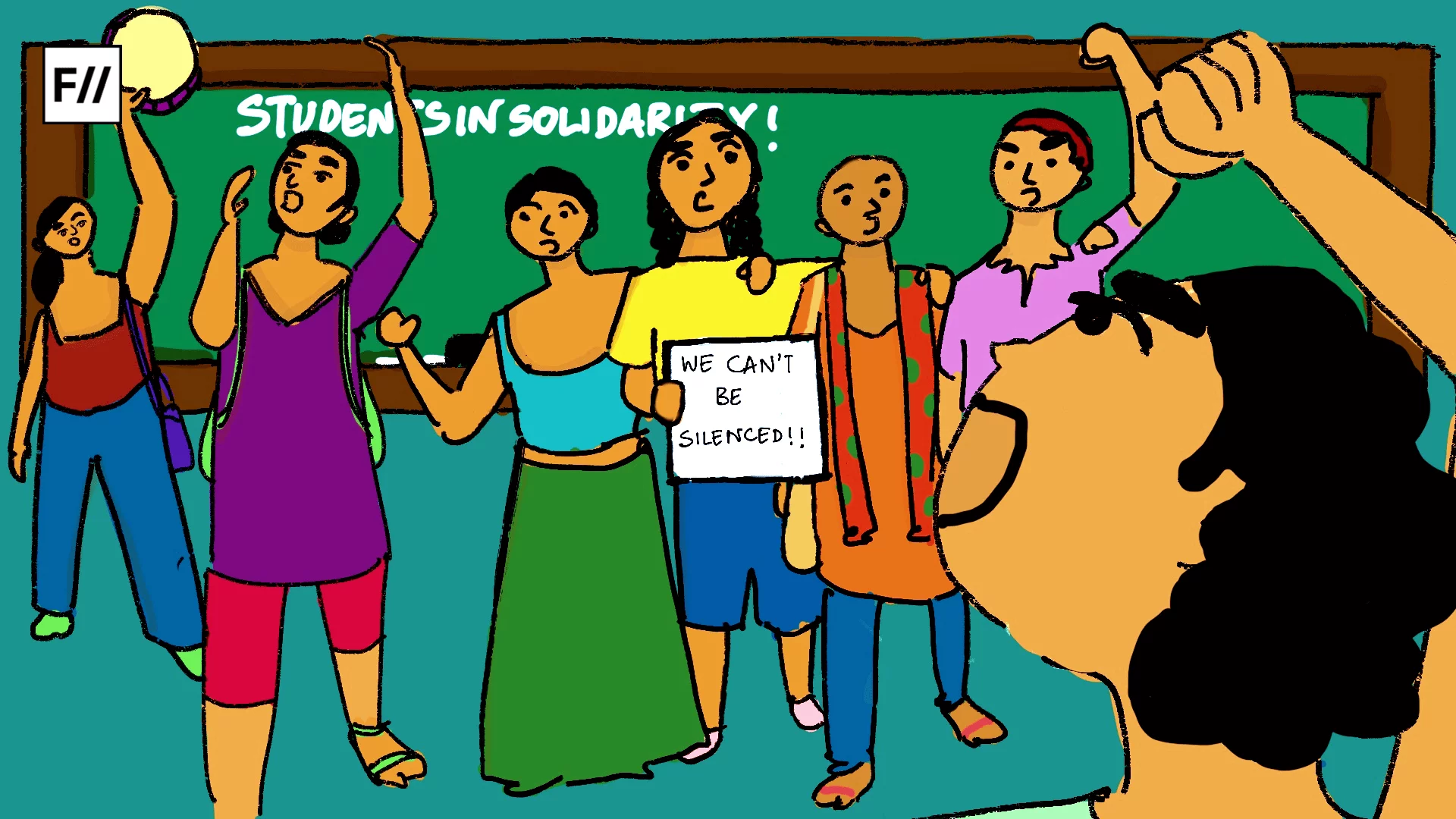I remember my own struggles as a young Indian Feminist. Having been born into a Telugu-Brahmin family, I did not believe nor acknowledge the massive level at which my privilege operated. It worked at my advantage when I wanted, and sometimes, even when I didn’t intend for it to. It took 24 years in coming to the conclusion that some may have it harder than me and that I am not suffering the truest brunt of the patriarchy.
Understanding your privilege is therefore an awakening which isn’t easy to arrive at. It means to have to break through a lot of the barriers and safety cushions we put in place for ourselves, and that are put in place for us by society as a whole. It’s that conscious decision you make to ascertain the fact to yourself, and everyone around you, that you will now not only fight against it, but if need be, use your privilege to do some good. Once recognized and understood, a privileged person is in a constant battle against patriarchy and also themselves – thus making this process, a lifelong one.
Modern-day Feminism, while an empowering feat, dictates the manner in which privilege works in a society – how the lives of not just women, but several oppressed communities are governed by ‘privilege’ as a societal construct. The negative connotation that is therefore attached to the word ‘privilege’ sticks with us but is often misconstrued. We always talk about how privilege oppresses, but not how it can empower. It’s possible that in doing so, people of privilege have been pushed against a wall into thinking their privilege is ‘bad’, in some manner of speaking – that isn’t necessarily the case. Rather, it needn’t be.
The ‘Onion’ And Its Layers – How Do We Use Privilege to Empower?
I view privilege as an onion, comprising of several layers. While context may differ from case to case and person to person, I will consider ‘gender’ as the main layer, for the purpose of this article. A man is thus, universally more privileged than a woman owing to the societal norms set in place by a patriarchal system.
Following this layer, we have many subsequent and deep-rooted ones. Religion is one such layer. Being a part of the majority religious community in one’s country by extension may automatically mean being of a privileged caste, depending on the situation. Religion and caste thus also entail what one’s class, may be. The respect that comes with being a Hindu, Brahmin, upper middle-class person is one that cannot be disputed. Religion, caste and class, thus form subsequent deeper layers of the onion, that once peeled and dismantled, can help one understand the privilege they hold in society.
India brims with many such inspiring, historical figures of significance. These people are emblematic of the power that privilege holds in society, especially an Indian one, and while that’s the case, there exist those who have gone out of their way to use this privilege for, a) either the greater good, or b) to make a very necessary statement, and Pandita Ramabai did both. She openly defied the patriarchal notion as well as caste system that pervaded India.
Born a privileged Hindu Brahmin at birth, Ramabai wrote about the experiences of ‘The High Caste Indian Woman’ and fully understood the brutality of such a life. She turned to her Christian faith at a time of need, when her own religion and caste betrayed her, and used her writing as a form of useful agency and a means of rebellious expression to ensure she’s heard. Among other things Ramabai was also instrumental in saving the lives of many women who were victims of child marriage, and also abolished the disfiguring image of widows. She promoted women’s education and advocated for acquiring basic legal rights for women like adoption, as well as owning property.
Born a privileged Hindu Brahmin at birth, Ramabai wrote about the experiences of ‘The High Caste Indian Woman’ and fully understood the brutality of such a life. She turned to her Christian faith at a time of need, when her own religion and caste betrayed her, and used her writing as a form of useful agency and a means of rebellious expression to ensure she’s heard.
Ramabai attempted to use her privilege in the way she knew best, at every juncture of life. In doing so, she used the different methods her agency allowed her, her literary prowess, and the privilege that came with her caste and religion, in general, to work for women who weren’t so. By dismantling the layers of caste, class, religion and gender, Ramabai set out to perform an impossible feat at a complex phase in India, and in doing so, learnt how to use what she had not just to her own advantage, but that of others.
Understanding the layers doesn’t mean the same as wanting to dismantle and eradicate them altogether. A look into Ramabai’s story would tell us, that she, some level, understood her own power, and used that to create impact. Therefore, this process first entails introspection on a personal level, before wanting to effect such change externally. Culture, tradition, social conditioning and the mindset that ensues as a result, are all contributing factors to status quo.
Thus, wanting to dismantle the layers altogether is a noble aim – but a presumptuous one. The issue therefore persists when we attack the beliefs or opinions of specific sects of communities, and not the system in itself. Ramanna Khanna describes this aspect of the argument, perfectly – it isn’t the vegetarian staunchness of the Iyer jaati, or the specificity of home design and cuisine of the Chettiar community that pose an issue in a dysfunctional Indian society – but the hierarchal menace the jaati proves to be, in itself. The contribution we make as a society, in encouraging the crude stigma, or in dismantling it altogether, is what shapes something as demanding and viral as caste, as a social system, and not the specific principles and customs a religious sect lives by.
Privilege as a concept contains many variables not just independently, but within each other which can get confusing if not understood correctly. It is so innate to our being but so easily ignorable at the same time. It’s because such variables don’t necessarily exist independently and often exist in a constant interplay with each other. There are thus other layers, that may be more specific to our person, such as race, sexuality, and disability – all which are to be equally understood and dismantled in order to understand how one’s privilege operates and how privileged one is.
Racial segregation was, and still remains a rampant and pervasive system of oppression in the United States, and especially in the 20th century. The general perception of the segregationist movement at the time was that white supremacy operated on an abusive level, suppressing the lives of the blacks. It was perceived, especially in the South, that they were largely in favour of the manner in which this racist institution operated. There did however exist White dissenters who broke this stereotype, used their privilege and agency to do what had to be done.
The Methodist women of the 20th century are an apt example of this. Similar to Ramabai’s attempt at implementing change, Methodist women focused their efforts on social work. They provided relief to the poor, and to black people. This was yet again, a form of rebellion. Much like how the caste system and untouchability flourished in India, a very similar hierarchical structure operated in the U.S. Similar to how Brahmins considered people of lower castes “dirty”, such acts of humanity towards the black race was considered taboo, as well.
Their acts were considered deviance towards the segregationist etiquette that was imbibed in their culture, and yet, through instruments of social work and charity, Methodist women found a way to use their privilege, and in doing so unraveled the many layers of the onion – Thelma Stevens was one of them. Having served as the director of the Bethlehem Center in Georgia, she emphasized upon the need for working towards, and not against the blacks. Having grown up in Mississippi in a family of poor white farmers, one may say that for Stevens, the cause of the Blacks was independent of her life. Devoid of connection. But she saw fit to make it her life – probably why she was often ridiculed for her staunch segregationist opposition and passion towards racial inclusion.
The more privileged one is, the more access they have – to resources in general, but also the capacity they hold in society to do something. This capacity is what we call ‘agency’, simply put. Agency here, is relevant because it can act as an antidote to privilege altogether. One can think of it this way – an onion induces tears, on one hand, and on another, it’s got properties that allow us to put it to better use, like adding good taste to a dish. Privilege is the same. On one hand privilege can be construed as an unreasoned sense of entitlement, which may cause undue and unknowing harm to another person. But it entails agency – access to certain instruments and resources, which by extension, can be instrumental in the journey to empower another who isn’t as fortunate.
The more privileged one is, the more access they have – to resources in general, but also the capacity they hold in society to do something. This capacity is what we call ‘agency’, simply put. Agency here, is relevant because it can act as an antidote to privilege altogether. One can think of it this way – an onion induces tears, on one hand, and on another, it’s got properties that allow us to put it to better use, like adding good taste to a dish.
Considering the example mentioned above, a Hindu upper-middle class Brahmin woman or man may have access to education, for example, as compared to a Muslim woman or a lower caste trans person. This is owed to social stratification and the hierarchical structures that are set in place by society. What one does with such access and agency, is thus the question of concern. Simple questions to ask oneself are thus –
“Do I have access to wealth? Does this wealth allow for an uninterrupted education, if I so wish? And if so, why?” The answer lies within a thorough introspection of oneself through the layers. The more one dismantles each layer, and goes deeper, specific to their person, the more it begins to make sense why certain people exist at a particular social stratum. It answers questions as to why such a disparity exists to begin with and also points us to the most important question of all – “What can people with privilege and by extension, such an agency do to empower those who don’t have it?”
Every layer that has been described above contributes to one’s privilege. So where does the process of introspection and accepting one’s privilege begin? It starts with asking questions to oneself. Ask as many as possible, and when there are enough to confront, one has to take accountability for everything that’s gone wrong – understanding the layers, and agency, and accessibility to resources that allows you to react, behave and act the way one has, so far in society.
Then, comes the ultimate step – to make that change, to yourself, and to those around you. Keeping in mind the magnanimous and radical movement that is Feminism, it is only fitting to mention a modern-day Indian Feminist I have learnt much from, and have been inspired by. Kalki Koechlin is one among that list. Known for her unconventional and groundbreaking contributions to the Indian Feminist Movement, Kalki answers, upon being asked whether she’s had to pay a price for her unconventional choices in the film business – “No, I’ve not had to pay a heavy price. In fact, rather than feel the pressure to keep doing something, I have retained my freedom and my ability to pick and choose. Of course, people have tried to stereotype me…You have to face all that noise. But it’s only short-lived if you realize you’re as new as your latest film.”
Also read: Dear Privileged Liberals, Do Not Appropriate But Ally Against CAA
Kalki utilized her agency in the film industry to depict unconventional, and anything but the run-of-mill privileged Indian woman. Born a French citizen, Kalki’s life in itself, is unconventional, and the route she chose to make a statement, even more so. In Dev.D, Kalki plays the role of a prostitute, In That Girl in Yellow Boots, she was Twitter-bashed and known as “that woman who gave a dude a handjob”, and she is also responsible for writing, directing and creating a new play called The Living Room, that showcases “the signature black humour reminiscent of the inimitable Woody Allen.”
Through her theatre work, Kalki has depicted the lives of many a woman, using the unconventional tool that is film and theatre, and in the most versatile manner, in every sense of the word. In doing so, one can only presume the level at which she has had to introspect the onion, unravel it, and apply these life lessons into not just her journey as a privileged woman, but to also apply it into her work – something which on the outside, looks effortless when it is anything but.
The Take-Away
In a world where oppression has been the norm, and patriarchy has been the rule-maker, self-awareness proves to be not just the best antidote to this concerning issue, but also the highest form of intelligence a person can possess. While a few examples have been brought to light above, history as we know it, and history as we are presently creating it, is rich with many such visionaries.
These are people who’ve stepped out of their privileged comfort zones, unraveled each layer and introspected as to what part of the onion defines their identity, and how such a layer can contribute to helping those in need. Privilege needn’t be a bad thing, but it can be a revolutionary one. The layers of the onion, coupled with complete awareness, the need to create an impact with such knowledge, and the usage of forms of expression to rebel creates a revolution thus, proving to be the perfect equation in an imperfect world. It is a means to a much-needed end, and when implemented, will only prove glorious victory.
Also read: Here Is A Step By Step Guide To Manage Savarna Privilege
I will leave this piece with the apt, yet inspiring words of the legendary Abolitionist Stalwart, Angelina Grimke- “The breaking of every yoke, letting the oppressed of every grade and description go free, and emancipation more glorious, than the world has ever seen.”
Anusha is a recent law graduate, and an aspiring Feminist writer. She has dedicated her life to the social sector and works at a non-profit called The/Nudge Foundation. Nudge works towards the cause of poverty, and alleviating it in all its forms. In her free time, Anusha enjoys reading about complex female characters and a myriad Feminist literature. Few among her favourites include “The High Caste Woman” by Pandita Ramabai, and “A Vindication of the Rights of Women” by Mary Wollstonecraft. Anusha hopes to one day set up her own organization that works towards the cause of women. You can find her on Facebook and LinkedIn.
Featured Image Source: Lune Magazine




